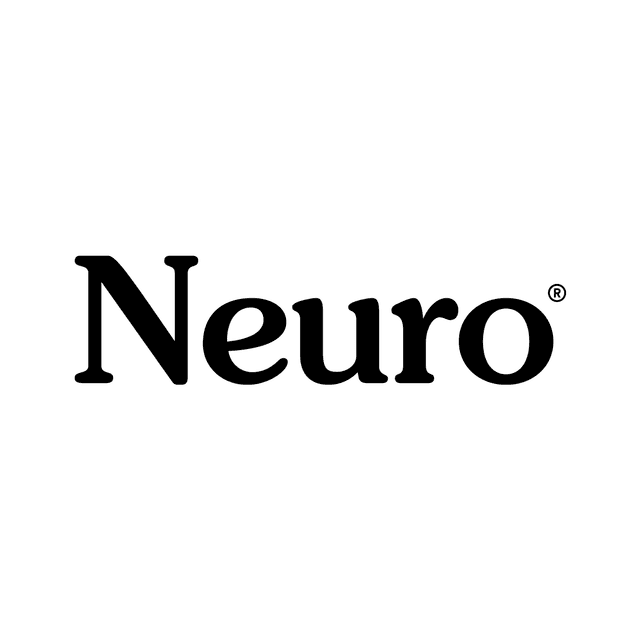The microbiome is like a hidden world inside our bodies, filled with trillions of tiny organisms. These microorganisms, mostly found in our gut, play a big role in keeping us healthy. Scientists are just beginning to understand how these communities work and how they affect everything from our digestion to our immune system. This article will explore the importance of the microbiome in health and disease, and look at the exciting new research in this field.
Key Takeaways
- The human microbiome is made up of trillions of microorganisms that live mostly in our gut and help keep us healthy.
- The gut microbiome helps with digestion, supports the immune system, and even affects our brain.
- An imbalance in the microbiome, known as dysbiosis, can lead to diseases like heart problems, cancer, and respiratory issues.
- New technologies are helping scientists study the microbiome in more detail, leading to better understanding and treatments.
- There are many ways to keep our microbiome healthy, including eating the right foods, taking probiotics, and even fecal transplants.
The Human Microbiome: An Organ in Its Own Right
Microbial Diversity and Composition
The human microbiome is a vast collection of microorganisms living in and on our bodies. These microbes include bacteria, viruses, fungi, and other tiny life forms. Each person has a unique microbiome, much like a fingerprint. This diversity helps our bodies perform many functions, from digesting food to protecting against harmful germs.
Role in Metabolic Functions
Microbes in our bodies help break down food and absorb nutrients. They produce essential vitamins and other compounds that our bodies need to stay healthy. Without these helpful microbes, our metabolism wouldn't work as well.
Impact on Immune System
Our microbiome plays a crucial role in training and regulating our immune system. It helps our body recognize and fight off harmful invaders while tolerating beneficial microbes. This balance is vital for preventing infections and maintaining overall health.
The human microbiome is not just a collection of microbes; it's a dynamic and essential part of our body's ecosystem.
Gut Microbiota and Its Influence on Health
Nutritional Contributions
The gut microbiota plays a crucial role in breaking down complex carbohydrates and fibers that the human body cannot digest on its own. This process results in the production of short-chain fatty acids (SCFAs), which are essential for colon health and energy production. Additionally, gut bacteria synthesize certain vitamins, such as vitamin K and some B vitamins, contributing to overall nutritional status.
Gut-Brain Axis
The gut and brain are connected through a complex network known as the gut-brain axis. This communication system involves neural, hormonal, and immune pathways. The gut microbiota can influence brain function and behavior by producing neurotransmitters and other signaling molecules. Changes in gut microbiota composition have been linked to mental health conditions like anxiety and depression.
Immune Modulation
The gut microbiota is essential for the development and function of the immune system. It helps in the maturation of immune cells and the production of antibodies. A balanced gut microbiota can protect against infections by outcompeting harmful pathogens and modulating inflammatory responses. Conversely, an imbalanced gut microbiota, or dysbiosis, can lead to immune-related disorders, including allergies and autoimmune diseases.
Understanding the gut microbiota's influence on health opens new avenues for therapeutic interventions aimed at restoring balance and promoting well-being.
Microbiome Dysbiosis and Disease Pathogenesis
Cardiovascular Diseases
Microbiome dysbiosis, or an imbalance in the microbial community, can significantly impact cardiovascular health. Changes in gut microbiota composition have been linked to the development of heart diseases. This imbalance can lead to chronic inflammation, which is a known risk factor for cardiovascular conditions. Additionally, certain metabolites produced by an unhealthy microbiome can contribute to the hardening of arteries and other heart-related issues.
Cancers
An imbalanced microbiome can also play a role in the development and progression of various cancers. Dysbiosis can lead to chronic inflammation, which creates an environment conducive to cancer growth. Moreover, some harmful bacteria can produce toxins that damage DNA, further increasing cancer risk. The relationship between microbiome and cancer is complex, but ongoing research continues to uncover the significant impact of microbial health on cancer development.
Respiratory Diseases
The respiratory system is not immune to the effects of microbiome dysbiosis. An imbalance in the respiratory microbiota can lead to chronic respiratory conditions such as asthma and chronic obstructive pulmonary disease (COPD). Dysbiosis in the respiratory tract can disrupt the immune response, making the lungs more susceptible to infections and inflammation. This highlights the importance of maintaining a balanced microbiome for overall respiratory health.
Understanding the role of microbiome dysbiosis in disease pathogenesis is crucial for developing new therapeutic strategies. By targeting the microbiome, we can potentially prevent or treat various diseases linked to microbial imbalances.
Technological Advances in Microbiome Research
Sequencing Technologies
The field of microbiome research has seen significant advancements due to high-throughput sequencing technologies. These technologies allow scientists to identify and analyze the vast array of microorganisms present in various environments. Metagenomic sequencing, for instance, provides a more precise identification of microorganisms and their functional genes compared to traditional 16S rRNA gene sequencing.
Bioinformatics
Bioinformatics plays a crucial role in interpreting the massive amounts of data generated by sequencing technologies. Advanced algorithms and computational tools help in mapping out microbial communities and understanding their interactions. This computational approach is essential for making sense of the complex data and drawing meaningful conclusions about the microbiome's role in health and disease.
Omics-Based Studies
Omics-based studies, including genomics, proteomics, and metabolomics, offer a comprehensive view of the microbiome. These studies help in understanding the functional capabilities of microbial communities. By integrating data from various omics approaches, researchers can gain insights into how microbiomes influence host physiology and contribute to disease.
The integration of these advanced technologies is paving the way for personalized medicine and microbiome-based diagnostics, offering new hope for treating various diseases.
Therapeutic Potential of Modulating the Microbiome
Probiotics and Prebiotics
Probiotics are live bacteria that can provide health benefits when consumed. They help balance the gut microbiome by increasing the number of good bacteria. Prebiotics, on the other hand, are non-digestible fibers that feed these beneficial bacteria. Together, they can improve digestion and boost the immune system. Common sources of probiotics include yogurt and fermented foods, while prebiotics are found in foods like garlic, onions, and bananas.
Fecal Microbiota Transplantation
Fecal Microbiota Transplantation (FMT) involves transferring stool from a healthy donor to the gastrointestinal tract of a patient. This procedure aims to restore a balanced microbiome. FMT has shown promise in treating conditions like Clostridium difficile infections and is being explored for other diseases, including inflammatory bowel disease and even neurological conditions.
Dietary Interventions
Diet plays a crucial role in shaping the microbiome. Consuming a diverse range of fruits, vegetables, and whole grains can promote a healthy gut. Specific dietary interventions, such as high-fiber diets or the inclusion of fermented foods, can positively influence the microbiome. These changes can lead to better overall health and may help prevent chronic diseases.
Modulating the microbiome through these methods offers a promising avenue for improving health and treating diseases. As research progresses, we may discover even more effective ways to harness the power of our microbial communities.
Microbiome Beyond the Gut: Other Body Sites
Oral Microbiome
The oral cavity is home to the second largest microbial community in the human body. This area includes various habitats like saliva, tongue, tooth surfaces, gums, and palate. These regions can show quick and significant changes in their microbial composition and activity.
Skin Microbiome
The skin hosts a diverse array of microorganisms that play a crucial role in protecting against pathogens. These microbes help maintain skin health by supporting the immune system and preventing infections.
Respiratory Microbiome
The respiratory tract also contains its own unique set of microorganisms. These microbes are essential for respiratory health, helping to fend off harmful pathogens and maintain a balanced immune response.
Understanding the microbiome beyond the gut opens new avenues for improving overall health and treating various diseases.
Conclusion
The study of the microbiome has opened a new chapter in understanding human health and disease. These tiny organisms living in our bodies play a big role in keeping us healthy and can also be linked to various illnesses when things go wrong. As we continue to learn more about the microbiome, we can find better ways to prevent, diagnose, and treat diseases. This knowledge can lead to new treatments and healthier lives for everyone. The journey of exploring the microbiome is just beginning, and it holds great promise for the future of medicine.
Frequently Asked Questions
What is the microbiome?
The microbiome is a community of tiny organisms like bacteria, fungi, and viruses that live in and on our bodies. They play a big role in keeping us healthy.
How does the gut microbiome affect our health?
The gut microbiome helps with digestion, supports the immune system, and even affects our mood and brain function.
What happens when the microbiome is out of balance?
When the microbiome is out of balance, it can lead to various health problems like digestive issues, allergies, and even diseases like diabetes and cancer.
Can we change our microbiome?
Yes, we can change our microbiome through diet, probiotics, and other lifestyle changes. These can help improve our health by balancing the microbiome.
What are probiotics and prebiotics?
Probiotics are good bacteria that we can take as supplements or in foods like yogurt. Prebiotics are foods that feed these good bacteria, like fiber-rich fruits and vegetables.
Is the microbiome only in the gut?
No, the microbiome exists in other parts of the body too, like the mouth, skin, and lungs. Each area has its own unique community of microorganisms.




















